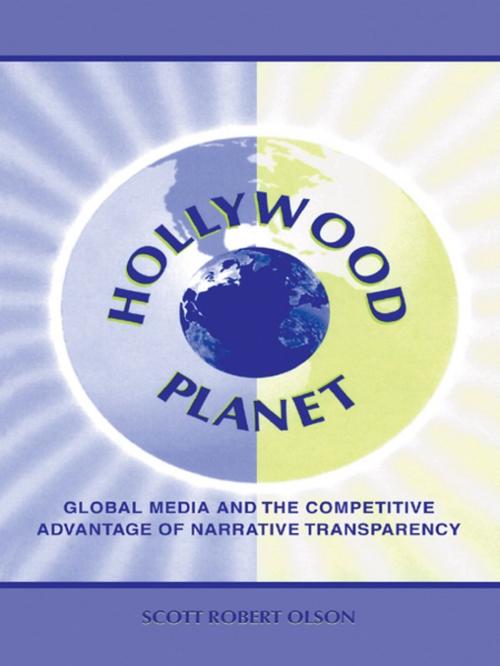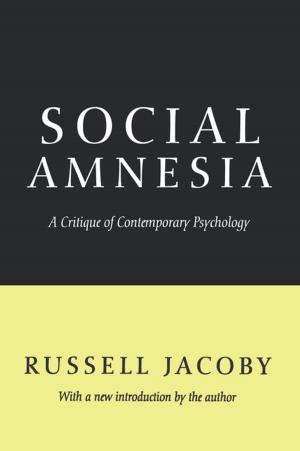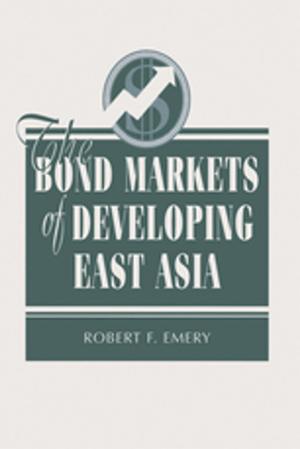Hollywood Planet
Global Media and the Competitive Advantage of Narrative Transparency
Nonfiction, Social & Cultural Studies, Social Science| Author: | Scott Robert Olson | ISBN: | 9781135669560 |
| Publisher: | Taylor and Francis | Publication: | June 1, 1999 |
| Imprint: | Routledge | Language: | English |
| Author: | Scott Robert Olson |
| ISBN: | 9781135669560 |
| Publisher: | Taylor and Francis |
| Publication: | June 1, 1999 |
| Imprint: | Routledge |
| Language: | English |
The popularity of American television programs and feature films in the international marketplace is widely recognized but scarcely understood. Existing studies have not sufficiently explained the global power of the American media nor its actual effects. In this volume, Scott Robert Olson tackles the issue head on, establishing his thesis that the United States' competitive advantage in the creation and global distribution of popular taste is due to a unique mix of cultural conditions that are conducive to the creation of "transparent" texts--narratives whose inherent polysemy encourage diverse populations to read them as though they are indigenous. Olson posits that these narratives have meaning to so many different cultures because they allow viewers in those cultures to project their own values, archetypes, and tropes into the movie or television program in a way that texts imported from other cultures do not, thus enabling the import to function as though it were an indigenous product.
As an innovative volume combining postcolonial and postmodern theory with global management strategic theory, Hollywood Planet is one of the first studies that attempts to account theoretically for numerous recent ethnographic studies that suggest different interpretations of television programs and film by a variety of international audiences. Relevant to studies in media theory and other areas of the communication discipline, as well as anthropology, sociology, and related fields, Hollywood Planet contains a powerful and original argument to explain the dominance of American media in the global entertainment market.
The popularity of American television programs and feature films in the international marketplace is widely recognized but scarcely understood. Existing studies have not sufficiently explained the global power of the American media nor its actual effects. In this volume, Scott Robert Olson tackles the issue head on, establishing his thesis that the United States' competitive advantage in the creation and global distribution of popular taste is due to a unique mix of cultural conditions that are conducive to the creation of "transparent" texts--narratives whose inherent polysemy encourage diverse populations to read them as though they are indigenous. Olson posits that these narratives have meaning to so many different cultures because they allow viewers in those cultures to project their own values, archetypes, and tropes into the movie or television program in a way that texts imported from other cultures do not, thus enabling the import to function as though it were an indigenous product.
As an innovative volume combining postcolonial and postmodern theory with global management strategic theory, Hollywood Planet is one of the first studies that attempts to account theoretically for numerous recent ethnographic studies that suggest different interpretations of television programs and film by a variety of international audiences. Relevant to studies in media theory and other areas of the communication discipline, as well as anthropology, sociology, and related fields, Hollywood Planet contains a powerful and original argument to explain the dominance of American media in the global entertainment market.















